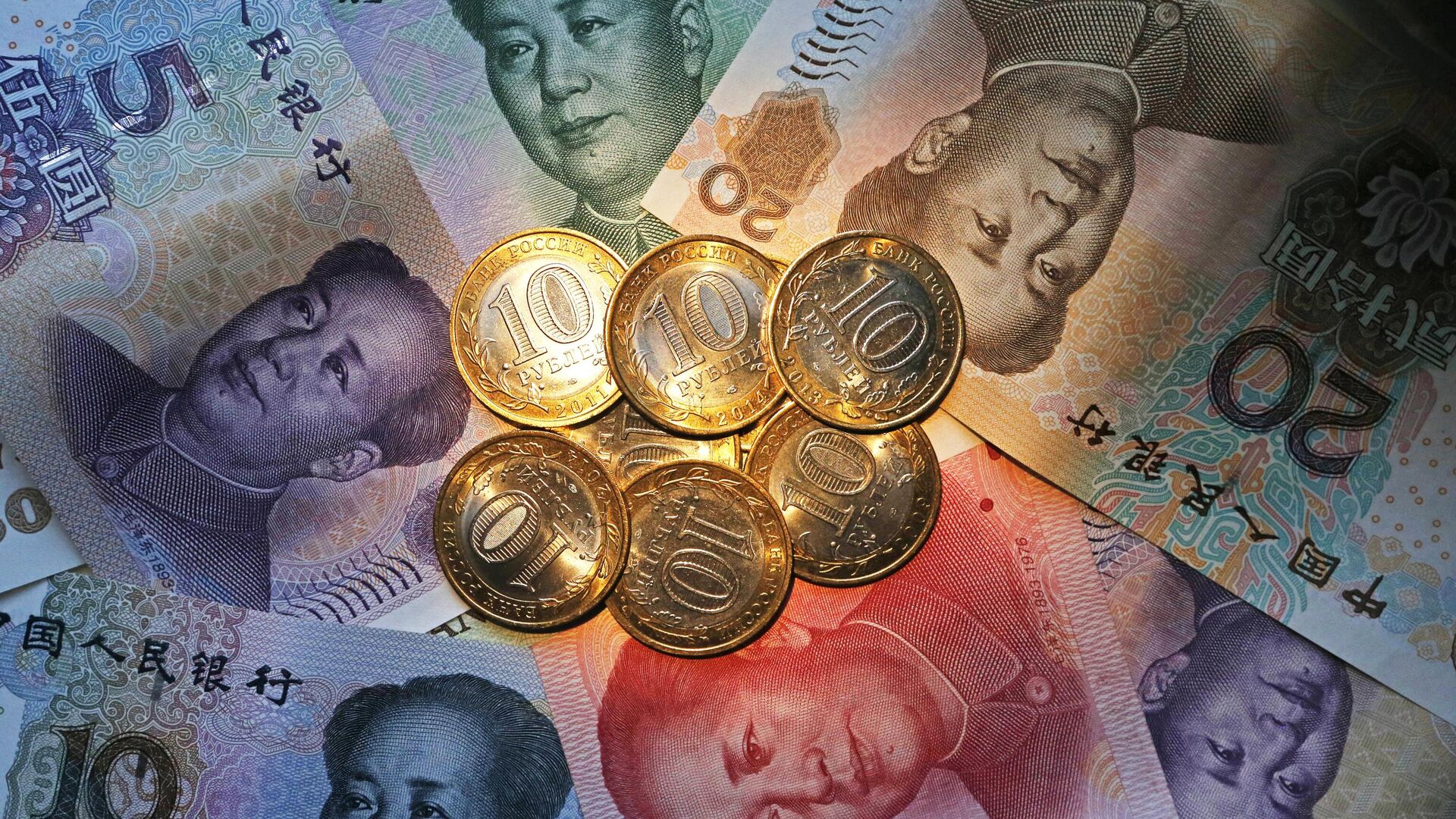https://sputnikglobe.com/20231225/events-of-2023-usher-in-de-facto-start-of-organized-new-economic-order-1115801933.html
Events of 2023 Usher in 'De Facto Start of Organized New Economic Order'
Events of 2023 Usher in 'De Facto Start of Organized New Economic Order'
Sputnik International
The year 2023 may be looked upon by historians as “de facto the beginning of an organized new economic order,” Paul Goncharoff, owner of consulting company Goncharoff LLC, told Sputnik.
2023-12-25T15:00+0000
2023-12-25T15:00+0000
2023-12-25T15:00+0000
analysis
2023 year in review
dedollarisation
yuan
russian economy under sanctions
sanctions
ukraine
russian central bank
https://cdn1.img.sputnikglobe.com/img/07e7/09/0b/1113289226_0:74:3072:1802_1920x0_80_0_0_92908c90d580c278d6ab6251798ad194.jpg
As 2023 makes its exit, this year may be looked upon by historians as “de facto the beginning of an organized new economic order,” Paul Goncharoff, a businessman and chief manager of consulting firm Goncharoff, LLC, told Sputnik.Summing up the main economic events and tendencies of the outgoing year, Goncharoff noted that they fell in line with the “strong and steady adherence of many nations to the idea of a multipolar economic and political world.”Indeed, in the face of US-led attempts to turn Russia into a 'pariah state' with punitive sanctions and other political pressure ploys, like trying to isolate it while forcing other nations to knuckle under and comply with the US-led West-dominated "rules-based" order, Moscow has emerged as the key factor in an ongoing global fight for sovereignty.The pundit put the spotlight on Russia’s success in coping with the tremendous challenges thrown its way.Failed Anti-Russia SanctionsThe barrage of sanctions imposed by the collective West over the Ukraine conflict failed spectacularly both in 2022, when they were first concocted, and during the outgoing year. Weighing in on why these self-harming restrictions aimed at “crippling” Russia not only failed to achieve this outcome, but backfired on their ringleaders, Goncharoff emphasized:Russia successfully weathered the economic sanctions imposed against it by Western powers, managing to adapt its economy and largely redirect the flow of its exports from Europe to Asia and Africa. Meanwhile, the disruption of Russian gas supplies due to these sanctions left Western countries and their allies facing an energy crisis, while struggling to fill their gas reserves. Europe has been grappling with spiraling inflation and surging energy bills ever since, with the costs of liquefied natural gas (LNG) exports from the US adding to the pressures on European households’ budgets. In addition to recession fears, some countries, like particularly hard-hit Germany, have been facing looming deindustrialization.De-Dollarization 'On Steroids' The accelerating global trend towards reducing dependence on America’s increasingly “weaponized” currency - the dollar - was a key feature throughout 2023, as was the growing use of national currencies in mutual payments. The US greenback “will probably remain the main currency of the world, at least for the foreseeable future, or at least another decade or two. It is too robust a settlement system with all of its established mechanisms and precedents to be easily set aside,” Goncharoff acknowledged. However, the sanctions targeting Russia that were introduced in 2022, and the weaponization of the dollar, the freezing of Russia's currency reserves are “unprecedented extraterritorial measures,” noted the pundit, that are driving the de-dollarization trend.In response to Western sanctions, “Russia has sought to unchain its ability to trade, as has China, to avoid the possibility of being similarly trapped. The financial world has also taken note of this unilateral behavior, and it has sparked de-dollarization on steroids,” Paul Goncharoff emphasized.Ways to sidestep the dollar and Western-dominated financial institutions via expanded trade in local currencies were among the key items on the agenda of a summit of the BRICS group of major emerging economies - Brazil, Russia, India, China, and South Africa - which wrapped up on August 24 in Johannesburg. The gathering ended with an announced expansion, with Saudi Arabia, Iran, Ethiopia, Egypt, Argentina, and the United Arab Emirates invited to join the club. The summit had stressed the importance of boosting use of local currencies in international trade and financial transactions.Yuan's Surging Role in Global PaymentsAgainst the backdrop of this trend towards sidestepping the dollar, China’s currency – the yuan – has been making strides in asserting itself on the global arena. Increased use of the yuan in sweeping trade between Russia and China has been undermining the dominance of the US dollar, European research confirmed this year."Over the course of 2022, the share of Russia’s imports invoiced in yuan (CNY) increased by 17 percentage points," the research paper by the European Bank for Reconstruction and Development (EBRD) stated. By the end of last year, 20 percent of Russia’s imports were invoiced in yuan. Furthermore, the use of yuan to settle imports from third countries also surged to reach 5 percent, the paper added.“The question now for China is how to grow the internationalization of the yuan, rather than simply trying to promote de-dollarization," remarked Goncharoff, adding that aside from the “headliner Russia-China vs USA, there is a large group of countries that are pursuing a broader concept of economic independence.”It is obvious that both Russia and China have a vested interest in promoting de-dollarization, said Goncharoff, if they hope to achieve and further develop their trade independence. Moreover, the results already achieved in 2023 have inspired many in the Global South to join in similar efforts, he remarked. The expert further made his point by citing the recently published book by renowned US economist Dr. Paul Craig Roberts, entitled "Why the Dollar-based International System Is Breaking Up."OPEC+ Efforts to Stabilize Oil PricesWestern attempts to smother the Russian economy with sanctions and trade boycotts in response to the conflict in Ukraine backfired as all the other restrictive measures, and instead triggered an energy crisis. Meanwhile, the world’s largest energy exporter, Moscow effectively benefited from surging prices for oil and gas. Russian exports that formerly flowed into Europe have largely been redirected toward Asia and Africa. But amid the chaos that the US-generated “extraterritorial trade restrictions and political one-upmanship have engendered,” Russia, in concerted efforts with the OPEC+ group of oil producers, sought to stabilize oil prices, Goncharoff pointed out.“All things considered, the main takeaway for hydrocarbon energy users is the fact that OPEC+ is in fact making concerted efforts to stabilize the price of crude at reasonable returns levels,” said the businessman.As a result, the markets within OPEC+ are seen as “steadily reliable,” he noted.
https://sputnikglobe.com/20231119/russia-withstands-western-sanctions-aims-for-economic-growth-higher-than-3---kremlin-1115054940.html
https://sputnikglobe.com/20231121/switch-to-payments-in-digital-national-currencies-may-accelerate-dedollarization---russian-minister-1115099284.html
https://sputnikglobe.com/20230911/rubles-share-in-russias-exports-tops-50-percent-as-dedollarization-gains-momentum-1113276778.html
https://sputnikglobe.com/20230927/growing-use-of-yuan-in-russia-china-trade-eroding-dollar-dominance-1113729588.html
https://sputnikglobe.com/20230901/brics-expansion-will-strengthen-opec-provide-more-leverage---us-economist-jeffrey-sachs-1113034979.html
ukraine
Sputnik International
feedback@sputniknews.com
+74956456601
MIA „Rossiya Segodnya“
2023
News
en_EN
Sputnik International
feedback@sputniknews.com
+74956456601
MIA „Rossiya Segodnya“
Sputnik International
feedback@sputniknews.com
+74956456601
MIA „Rossiya Segodnya“
main economic trends of 2023, economic events and tendencies of 2023, 2023 year-end review in economy, failed anti-russia sanctions, dedollarization, de-dollarization, growing role of chinese yuan in payments, opec+, oil prices
main economic trends of 2023, economic events and tendencies of 2023, 2023 year-end review in economy, failed anti-russia sanctions, dedollarization, de-dollarization, growing role of chinese yuan in payments, opec+, oil prices
Events of 2023 Usher in 'De Facto Start of Organized New Economic Order'
An emerging new global economic system, failed Western sanctions targeting Russia over the Ukraine crisis, the de-dollarization trend and surge in payments in mutual currencies were spotlighted by a business consultant as he put forward his perspective on the outgoing year's key economic developments.
As 2023 makes its exit, this year may be looked upon by historians as “de facto the beginning of an organized new economic order,” Paul Goncharoff, a businessman and chief manager of consulting firm Goncharoff, LLC, told Sputnik.
Summing up the main economic events and tendencies of the outgoing year, Goncharoff noted that they fell in line with the “strong and steady adherence of many nations to the idea of a multipolar economic and political world.”
Indeed, in the face of
US-led attempts to turn Russia into a 'pariah state' with punitive sanctions and other political pressure ploys, like trying to isolate it while forcing other nations to knuckle under and comply with the US-led West-dominated "rules-based" order,
Moscow has emerged as the key factor in an ongoing global fight for sovereignty.
“The economic world has roughly divided into pro-US Dollar G7 adherents, and pro-sovereign currencies BRICS+++ nations. Sanctions, secondary sanctions, etc. or fears of such... have cut off access to normal trade except within the purview of each bloc, and even that is under increasing restrictions by the established financial order,” noted the businessman.
The pundit put the spotlight on Russia’s success in coping with the tremendous challenges thrown its way.
"The decisions and actions taken by the Central Bank of Russia in navigating and steering Russia's economic ship through tremendously dangerous financial reefs and shoals. The health of Russia's financial system, and its comparatively low debt load when compared to the rest of the world is a remarkable achievement for any nation, and for any time in history," he stressed.
Failed Anti-Russia Sanctions
The barrage of sanctions imposed by the collective West over the Ukraine conflict
failed spectacularly both in 2022, when they were first concocted, and during the outgoing year. Weighing in on why these self-harming restrictions aimed at “crippling” Russia not only failed to achieve this outcome, but backfired on their ringleaders,
Goncharoff emphasized:
“The quick answer is that sanctions as such will not work when the majority of the world needs the goods, resources, and trade infrastructure the sanctioned country has readily available.”
Russia successfully weathered the economic sanctions imposed against it by Western powers, managing to adapt its economy and largely redirect the flow of its exports from Europe to Asia and Africa. Meanwhile, the disruption of Russian gas supplies due to these sanctions left Western countries and their allies facing an
energy crisis, while struggling to fill their gas reserves. Europe has been grappling with spiraling inflation and surging energy bills ever since, with the costs of liquefied natural gas (LNG) exports from the US adding to the pressures on European households’ budgets. In addition to recession fears, some countries, like
particularly hard-hit Germany, have been facing looming deindustrialization.
“Artificially induced scarcity fools no one, and the world is not populated entirely by fools. The sanctions on steroids that have been introduced against Russia are the largest and most voluminous set of restrictive measures ever imposed against any nation in history. Any objective analysis shows them to be vastly overblown, with flawed intent. For much of the world, it has become a sport to determine means and methods to legally avoid the sanctions traps, and continue doing business and thriving,” stated Goncharoff.
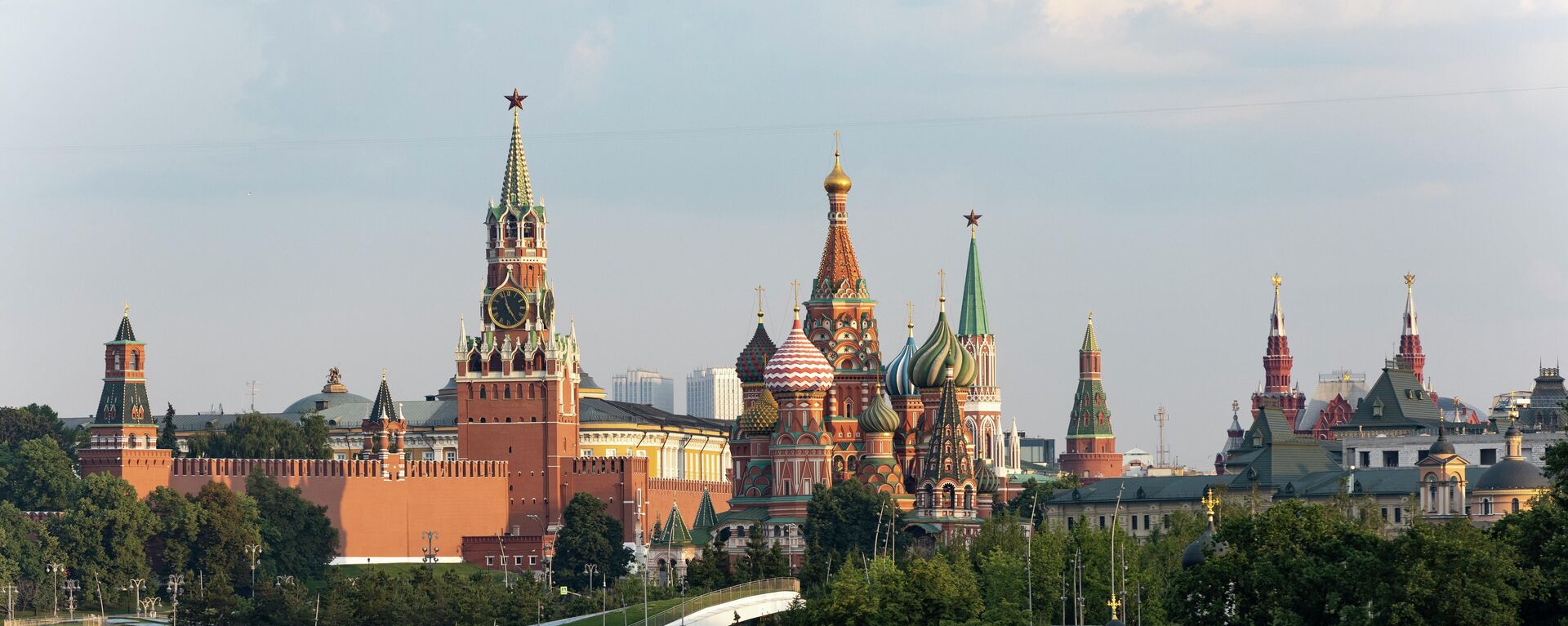
19 November 2023, 10:27 GMT
De-Dollarization 'On Steroids'
The
accelerating global trend towards reducing dependence on America’s increasingly “weaponized” currency - the dollar - was a key feature throughout 2023, as was the growing use of national currencies in mutual payments.
The US greenback “
will probably remain the main currency of the world, at least for the foreseeable future, or at least another decade or two. It is too robust a settlement system with all of its established mechanisms and precedents to be easily set aside,” Goncharoff acknowledged. However, the sanctions targeting Russia that were introduced in 2022, and the weaponization of the dollar, the
freezing of Russia's currency reserves are “
unprecedented extraterritorial measures,” noted the pundit, that are driving the de-dollarization trend.
Dedollarization took on a new significance as Washington expanded use of its currency as a “sanctions” tool wielded to achieve geopolitical objectives. Furthermore, the dollar’s increasingly perilous global position amid prospects of a recession in the US also fueled the dollar-dethroning debate.
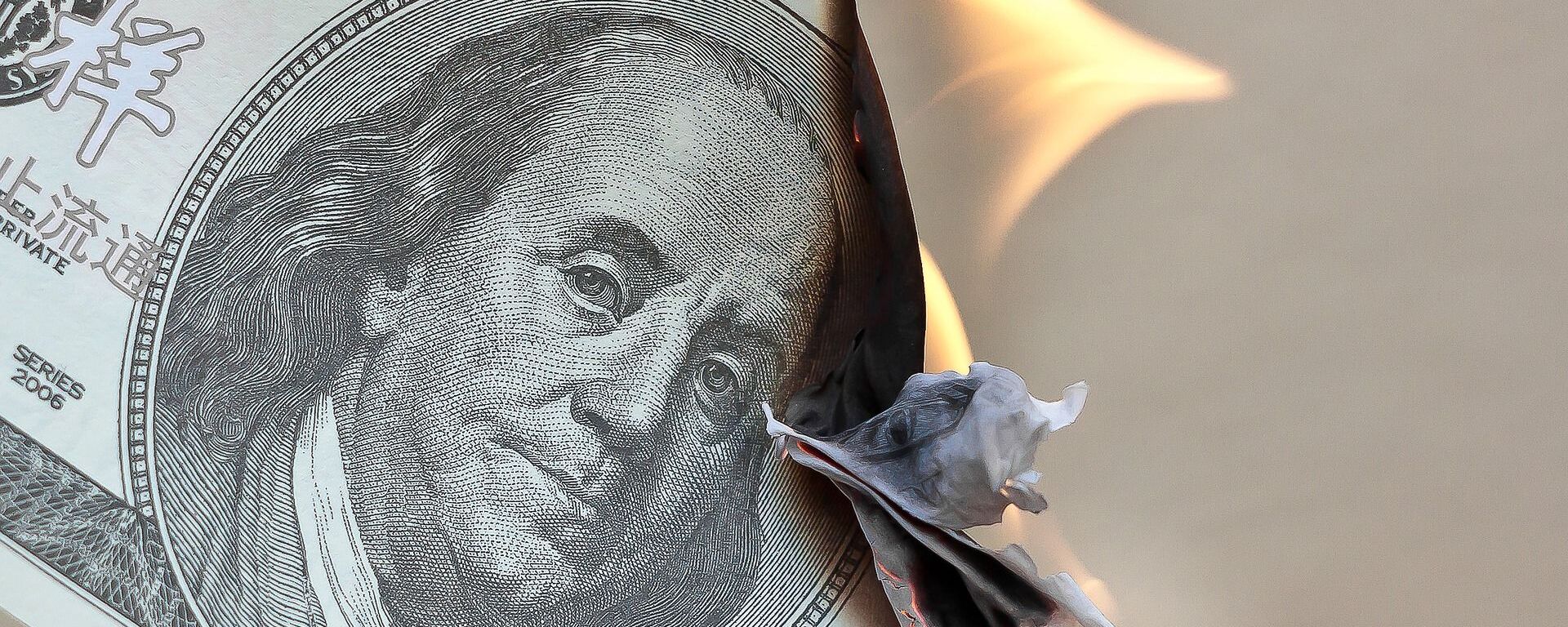
21 November 2023, 12:34 GMT
In response to Western sanctions, “Russia has sought to unchain its ability to trade, as has China, to avoid the possibility of being similarly trapped. The financial world has also taken note of this unilateral behavior, and it has sparked de-dollarization on steroids,” Paul Goncharoff emphasized.
Ways to sidestep the dollar and Western-dominated financial institutions via
expanded trade in local currencies were among the key items on the agenda of a summit of the BRICS group of major emerging economies - Brazil, Russia, India, China, and South Africa - which wrapped up on August 24 in Johannesburg. The gathering ended with an announced expansion, with Saudi Arabia, Iran, Ethiopia, Egypt, Argentina, and the United Arab Emirates invited to join the club. The summit had stressed the importance of boosting use of local currencies in international trade and financial transactions.
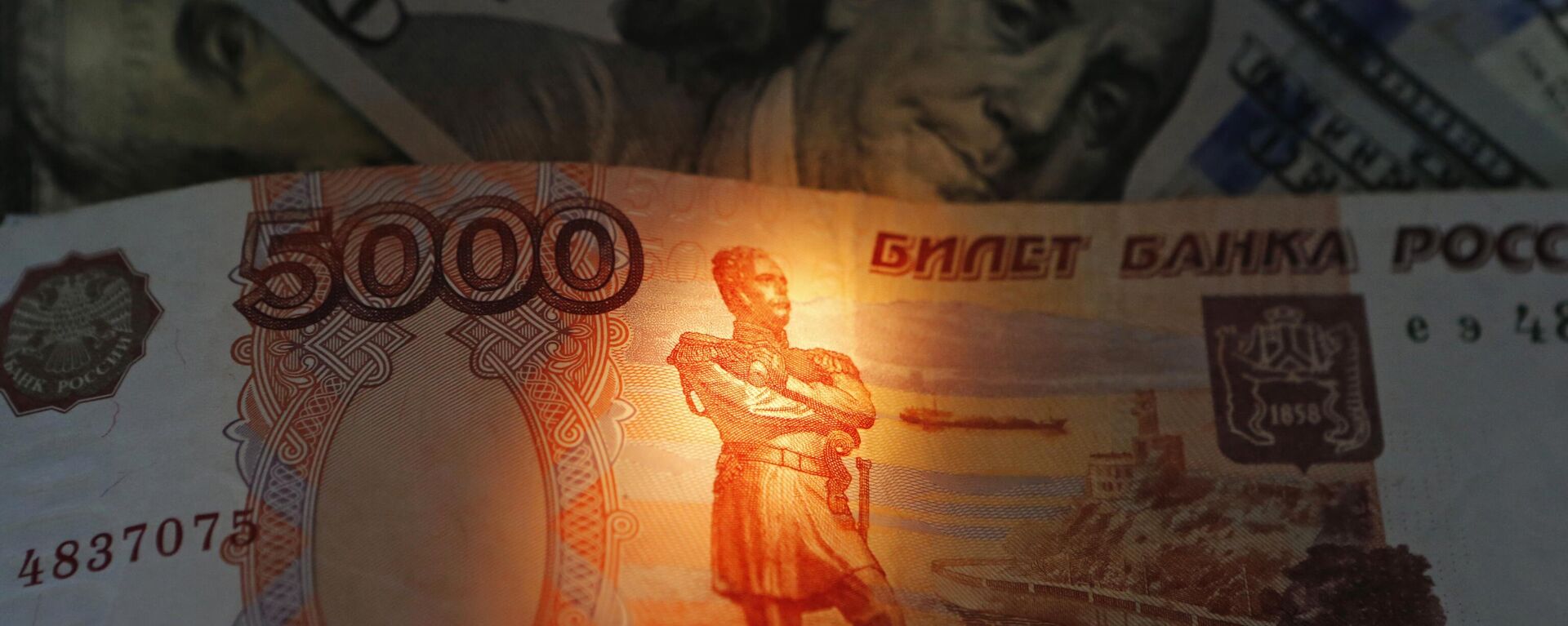
11 September 2023, 12:53 GMT
Yuan's Surging Role in Global Payments
Against the backdrop of this trend towards sidestepping the dollar, China’s currency –
the yuan – has been making strides in asserting itself on the global arena. Increased use of the yuan in sweeping trade between Russia and China has been undermining the dominance of the US dollar, European
research confirmed this year.
"Over the course of 2022, the share of Russia’s imports invoiced in yuan (CNY) increased by 17 percentage points," the
research paper by the European Bank for Reconstruction and Development (EBRD) stated. By the end of last year,
20 percent of Russia’s imports were invoiced in yuan. Furthermore, the use of yuan to settle imports from third countries also surged to reach
5 percent, the paper added.
According to data published by Russia’s Ministry for Economic Development this year, during the first half of 2023, the yuan accounted for 75% of Russia's trade settlements with China, and 25% of its trade settlements with other countries.
“The question now for China is how to grow the internationalization of the yuan, rather than simply trying to promote de-dollarization," remarked Goncharoff, adding that aside from the “headliner Russia-China vs USA, there is a large group of countries that are pursuing a broader concept of economic independence.”
“When a country uses the dollar, it effectively surrenders part of its economic sovereignty to Washington, which alone enjoys the right to print dollars and set US monetary policy. This second kind of effort includes several members of the Global South. Combined, this multipolar approach is already changing the structural financial systems of the world,” he said.
It is obvious that both Russia and China have a vested interest in promoting de-dollarization, said Goncharoff, if they hope to achieve and further develop their trade independence. Moreover, the results already achieved in 2023 have inspired many in the
Global South to join in similar efforts, he remarked. The expert further made his point by citing the recently published book by renowned US economist Dr. Paul Craig Roberts, entitled "
Why the Dollar-based International System Is Breaking Up."
“Debt, rates, derivatives, weaponization, micro-Fed-management, and political decision-making on the US dollar all combine, as Roberts accurately describes, to set the stage for the systemic deterioration, even implosion of established financial mechanisms.”
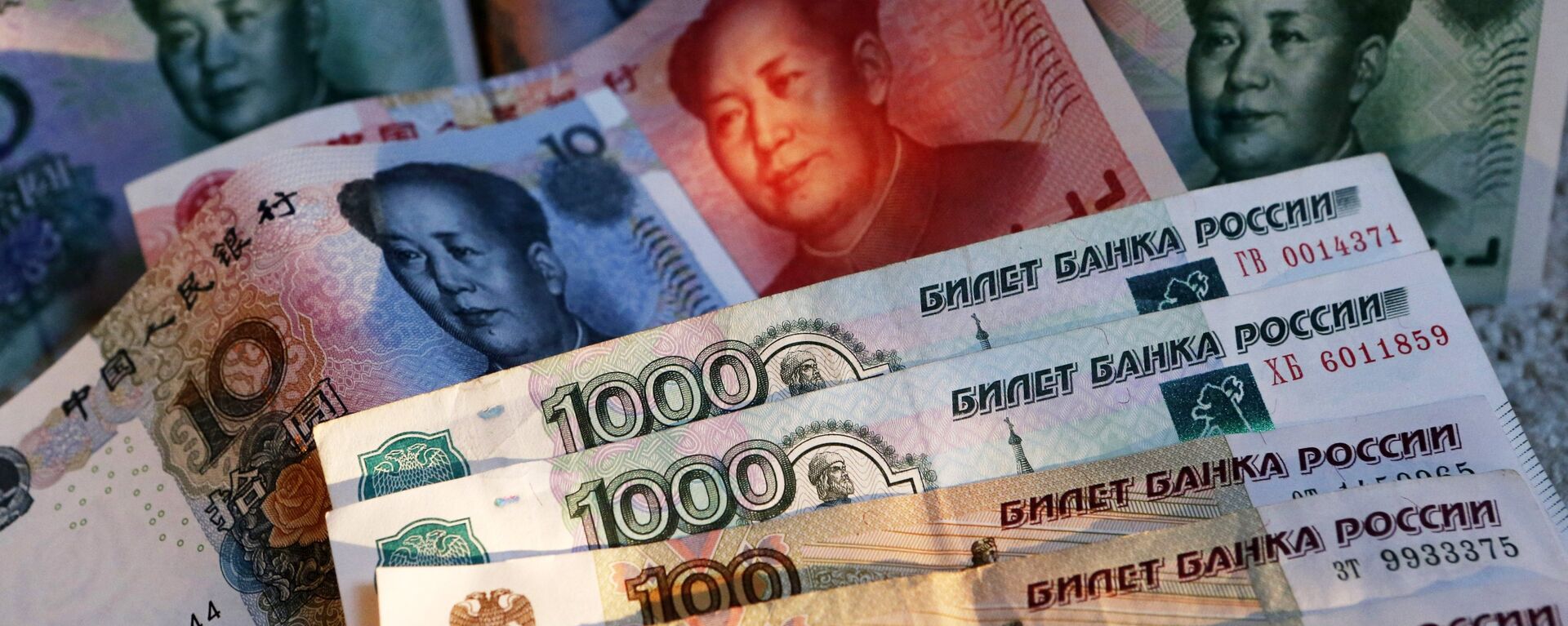
27 September 2023, 13:24 GMT
OPEC+ Efforts to Stabilize Oil Prices
Western attempts to smother the Russian economy with sanctions and trade boycotts in response to the conflict in Ukraine backfired as all the other restrictive measures, and instead triggered an energy crisis. Meanwhile, the world’s largest energy exporter, Moscow effectively
benefited from surging prices for oil and gas. Russian exports that formerly flowed into Europe have largely been redirected toward Asia and Africa.
But amid the chaos that the US-generated “
extraterritorial trade restrictions and political one-upmanship have engendered,” Russia, in concerted efforts with the
OPEC+ group of oil producers, sought to stabilize oil prices, Goncharoff pointed out.
Russia’s President Vladimir Putin visited the United Arab Emirates (UAE) and Saudi Arabia shortly after the OPEC+ group, which includes all three countries, agreed to voluntary output cuts totaling about 2.2 million barrels a day.
“All things considered, the main takeaway for hydrocarbon energy users is the fact that OPEC+ is in fact making concerted efforts to stabilize the price of crude at reasonable returns levels,” said the businessman.
As a result, the markets within OPEC+ are seen as “steadily reliable,” he noted.
“Russia's goal has been and remains to make certain its access to markets and reliability of its contracted supplies remain reliably stable in today's very uncertain trading times. This meshes well with the majority of OPEC+,” Paul Goncharoff concluded.

1 September 2023, 04:19 GMT
